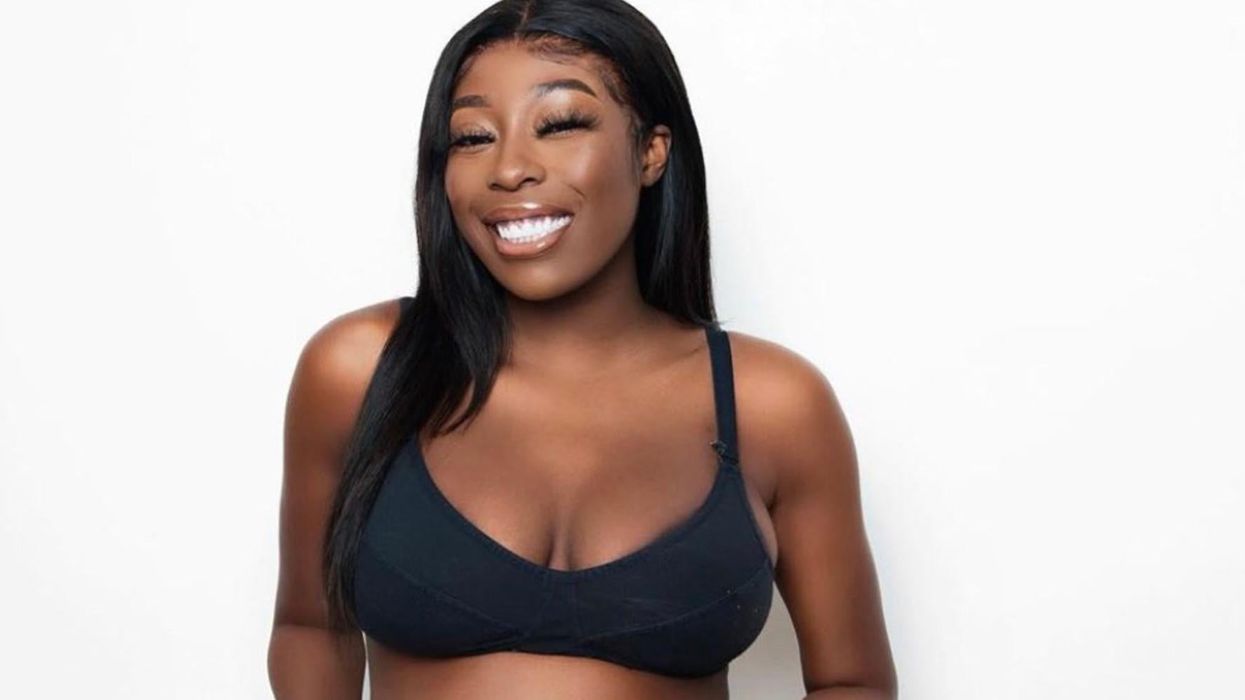
People are discussing racism in maternity care after the tragic death of a Black blogger and her unborn child.
Pregnant YouTube star Nicole Thea died at age 24 with her unborn son Reign, her family wrote in an Instagram post on Sunday.
The causes of the deaths for Thea and her baby have not been released to the public, however, it has sparked a discussion online about racism in healthcare following statistics that Black mothers are more likely to die at childbirth.
The news was shared on her Instagram page on Sunday afternoon, in a message apparently written by Thea’s mother.
Thea leaves behind her partner and father of her unborn baby, street dancer Global Boga – real name Jeffery Frimpong.
The message on Thea's account said:
To all Nicole's friends and supporters it is with great sadness that I have to inform you that Nicole and her son she and Boga named Reign sadly passed away on Saturday morning.
Also Nicole pre-schedule a few YouTube videos and Boga has made the decision to allow them to be aired. As a family we ask that you give us privacy because our hearts are truly broken and we are struggling to cope with what has happened. Thank you her mum RIP My beautiful baby girl Nicnac and my grandson Reign, I will miss you for the rest of my life until we meet again in eternal heaven.
Her last Youtube video was posted just minutes before her death was announced.
As news of her death broke the YouTube community shared their outpouring grief and raised awareness for the tragic statistics that show Black mothers are five times more likely to die at childbirth than white mothers.
life is so short omg💔 https://t.co/xg7MtFFXMa— karlae (@karlae) 1594574465
May God comfort her partner & her family & grant them with all the strength & peace. May Nicole Thea & beautiful b… https://t.co/Byi9HIka88— sorry, Sir. (@sorry, Sir.) 1594574036
Despite the fact that the cause of Thea's death isn't yet known, these statistics and this tragic story has highlighted what a lot of people already knew about the greater risks of childbirth to Black women.
Black women are 5 times more likely to die during childbirth in comparison to white women. There is more than one r… https://t.co/HK6af3gyRt— Kelechi (@Kelechi) 1594584347
Sharing the pregnancy and being publicly excited isn’t the issue, the problem is the systemic ways in which black w… https://t.co/F2OI2dlTj6— Audrey (@Audrey) 1594584197
Short little insight to the way black women are treated during pregnancy by health care professionals. RIP Nicole T… https://t.co/nLaFCEPUIJ— chevyy. (@chevyy.) 1594577108
According to the UK Confidential Enquiry into Maternal Deaths, the chance of death is one in 2,500 for Black women but the rate was five times smaller for white women between 2014 and 2016.
The worrying figures even influenced a warning from the report's author:
The almost fivefold higher mortality rate amongst Black women compared with white women requires urgent explanation and action.
In recent years Beyoncé and Serena Williams have shared their personal complications during pregnancy and childbirth as Black women.
Beyoncé spoke about her preeclampsia in a Vogue interview, which black women have a higher risk of developing. She revealed she nearly lost her life giving birth to twins Rumi and Sir in June 2017.
Meanwhile, Williams said she was lucky to survive a "slew of health complications" around the birth of her daughter Alexis Olympia, also born in 2017.
But why is this happening?
While many experts argue that there could be socio-economic factors in play, statistics also show that middle-class Black women are also included in the figures.
British author Candice Brathwaite has spoken out on multiple occasions about how she believes she was the victim of racial bias around the time she gave birth to her daughter.
She reports that expectant white mothers "seemed to be listened to in more depth and with a sense of empathy" while she did not receive the same approach.
Brathwaite told staff she felt "worse than I should" after a C-section, but believes her concerns were dismissed and blamed it on racial bias within the NHS.
"I was told, 'you're over-thinking it, it's your first kid. [Later], I was told 'we're taking you into theatre or you won't be here tomorrow'," she told the BBC, after returning to hospital with septicaemia hours after being discharged.
"I was so exhausted all I could do was laugh and say, 'I told you I didn't feel great'.
"Health trusts need to admit there is racial bias. There needs to be better training so people can say 'am I responding to this person differently and why is that?'
We send our condolences to Thea's family and friends, and hope we continue to have these vital conversations about racism in healthcare.













